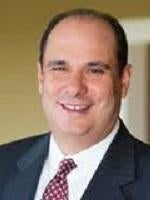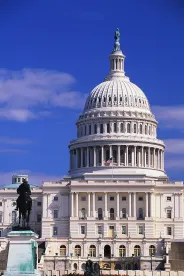After years of debating the need for patent reform, Congress has acted. Today (September 8th), the Senate passed the House version of the "America Invents Act" (the Act). The bill will now go to the President, who is expected to sign it into law almost immediately. The Act represents the most sweeping overhaul of U.S. patent law in almost 60 years and will effect dramatic changes in a number of key areas. Below is a summary of a few key provisions. Switch to "first to file": Under U.S. patent law, the rights to an invention have historically resided with the first inventor, regardless of who files the first patent application. Most other countries use a "first to file" approach, rather than the "first to invent" rule. Thus, in other countries, it does not matter who invented something first, it matters only who won the "race to the Patent Office." The U.S. rule has created some peculiarities, including so-called "interference" proceedings at the U.S. Patent and Trademark Office (USPTO) and satellite disputes during litigation about who really was the first inventor. The Act seeks to eliminate such issues and bring the United States into step with the rest of the world by giving the rights in an invention to the first inventor to file a patent application.
-
Post-grant review: The Act establishes a procedure allowing a challenger to file a petition for review of a patent within a brief window after its issuance. Although similar in some ways to theinter partes reexamination procedures that are already available, the new post-grant review will move much more quickly, with petitions being decided within one year of a patent's issuance. There is also a provision establishing separate post-grant review procedures for so-called "business method" patents.
-
Willful infringement: There has historically been much debate about whether, or to what extent, a patentee can prove willful infringement by pointing to an alleged infringer's failure to obtain an opinion of counsel concerning the accused activity. The Act seeks to end this debate by providing that failure to obtain advice of counsel (or the failure to introduce such evidence) cannot be used to prove willful infringement.
-
Multidefendant patent cases: One recent trend in patent litigation has seen nonpracticing patentees filing massive infringement actions against dozens, sometimes hundreds, of unrelated defendants. The Act codifies the current procedural rules by providing that joinder of multiple defendants in such cases is proper only if the plaintiff's claims arise out of the same set of transactions or occurrences, and then takes it a step further by specifying that "accused infringers may not be joined in one action . . . or have their actions consolidated for trial, based solely on allegations that they each have infringed the patent or patents in suit."
-
Elimination of false patent marking claims: The patent laws previously prohibited marking a product with the number of a patent that did not actually cover the product, and allowed for qui tam suits by members of the general public to enforce this prohibition. Over the past several years, following some significant legal developments, a cottage industry has arisen in which hundreds of false patent marking cases have been filed across the country by dozens of small entities formed for the sole purpose of asserting such claims. The Act does away with this phenomenon by allowing such suits to be filed only by the federal government or by a third party that has actually suffered some competitive injury.
There is one other issue that is notable—and controversial—due to its absence from the Act. Historically, the USPTO has not retained the fees it collects from applicants seeking patents or trademarks. However, many observers—including Paul Michel, former Chief Judge of the U.S. Court of Appeals for the Federal Circuit—have been advocating for that to change. The advocates for this approach have argued that allowing the USPTO to retain its fees is the only viable way to increase patent quality and ease the backlog at all levels of the agency. Although the version of the bill originally passed by the Senate did include such a provision, the version passed by the House—and the one that the Senate has now passed—does not.
The America Invents Act effects numerous substantial changes to all aspects of the patent system, from prosecution to litigation and everything in between. It will likely take inventors, patent examiners, litigants, and judges many years to digest and fully understand all of these new provisions.





 />i
/>i

